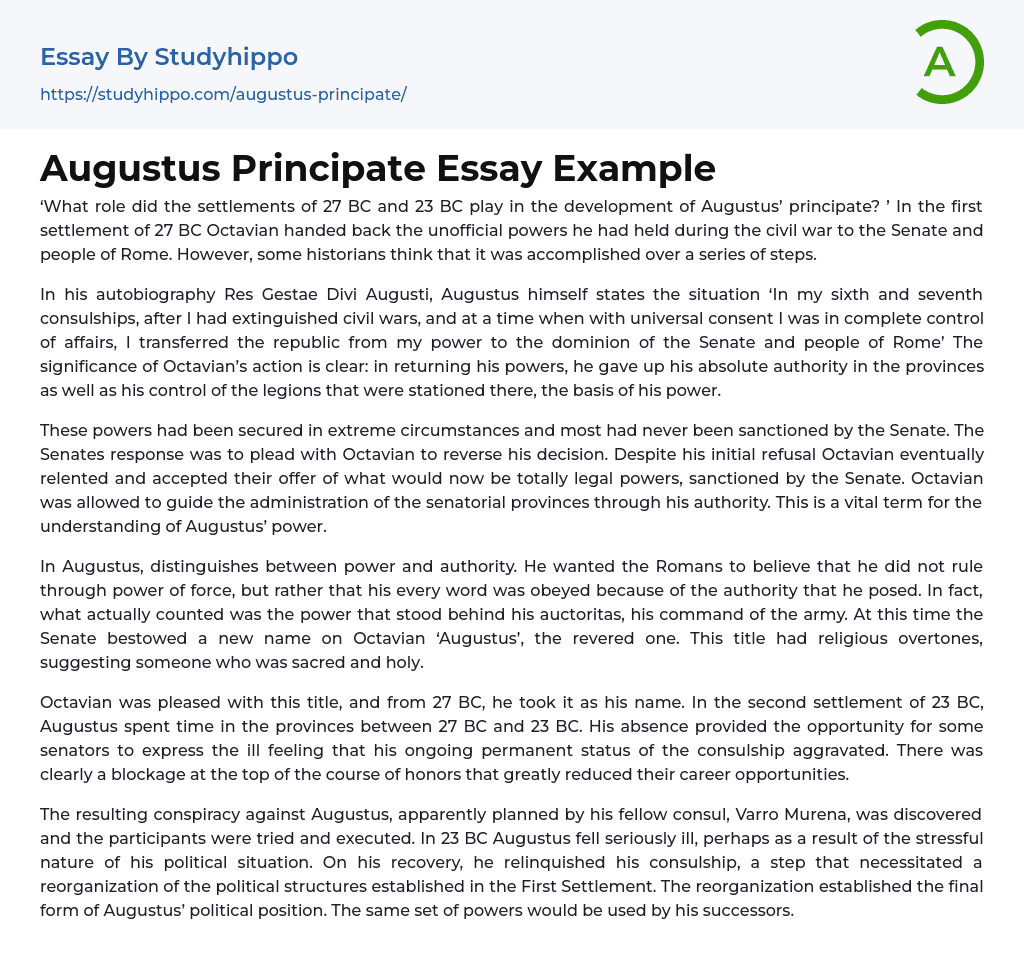‘What role did the settlements of 27 BC and 23 BC play in the development of Augustus’ principate? ’ In the first settlement of 27 BC Octavian handed back the unofficial powers he had held during the civil war to the Senate and people of Rome. However, some historians think that it was accomplished over a series of steps.
In his autobiography Res Gestae Divi Augusti, Augustus himself states the situation ‘In my sixth and seventh consulships, after I had extinguished civil wars, and at a time when with universal consent I was in complete control of affairs, I transferred the republic from my power to the dominion of the Senate and people of Rome’ The significance of Octavian’s action is clear: in returning his powers, he gave up his absolute authority in the provinces as well as his control of th
...e legions that were stationed there, the basis of his power.
These powers had been secured in extreme circumstances and most had never been sanctioned by the Senate. The Senates response was to plead with Octavian to reverse his decision. Despite his initial refusal Octavian eventually relented and accepted their offer of what would now be totally legal powers, sanctioned by the Senate. Octavian was allowed to guide the administration of the senatorial provinces through his authority. This is a vital term for the understanding of Augustus’ power.
In Augustus, distinguishes between power and authority. He wanted the Romans to believe that he did not rule through power of force, but rather that his every word was obeyed because of the authority that he posed. In fact, what actually counted was the powe
that stood behind his auctoritas, his command of the army. At this time the Senate bestowed a new name on Octavian ‘Augustus’, the revered one. This title had religious overtones, suggesting someone who was sacred and holy.
Octavian was pleased with this title, and from 27 BC, he took it as his name. In the second settlement of 23 BC, Augustus spent time in the provinces between 27 BC and 23 BC. His absence provided the opportunity for some senators to express the ill feeling that his ongoing permanent status of the consulship aggravated. There was clearly a blockage at the top of the course of honors that greatly reduced their career opportunities.
The resulting conspiracy against Augustus, apparently planned by his fellow consul, Varro Murena, was discovered and the participants were tried and executed. In 23 BC Augustus fell seriously ill, perhaps as a result of the stressful nature of his political situation. On his recovery, he relinquished his consulship, a step that necessitated a reorganization of the political structures established in the First Settlement. The reorganization established the final form of Augustus’ political position. The same set of powers would be used by his successors.




